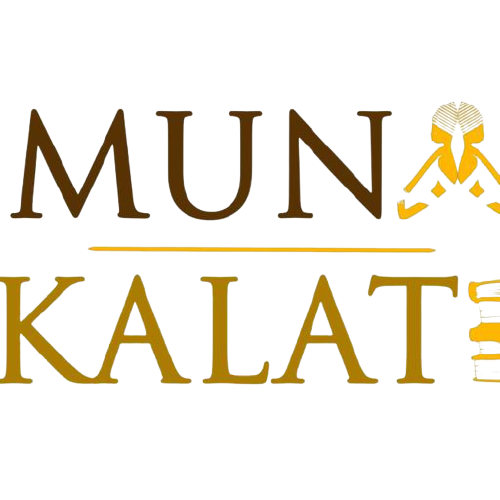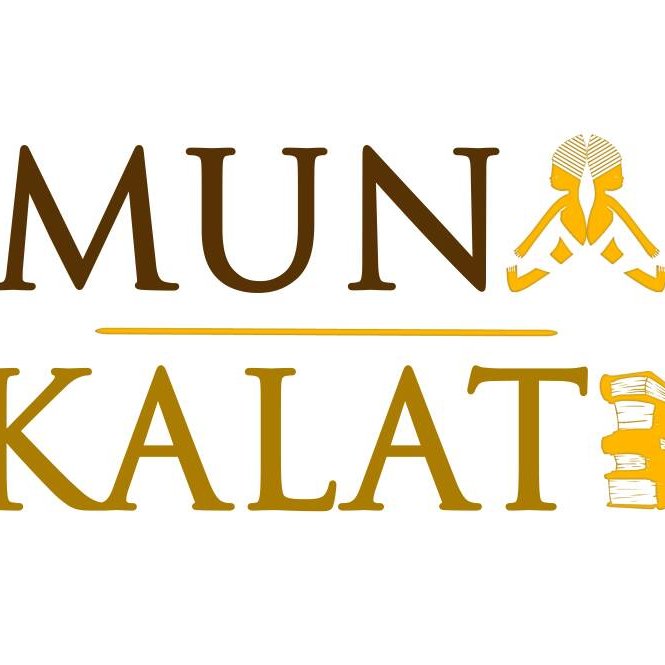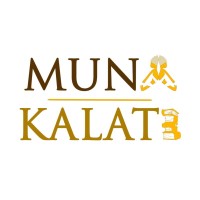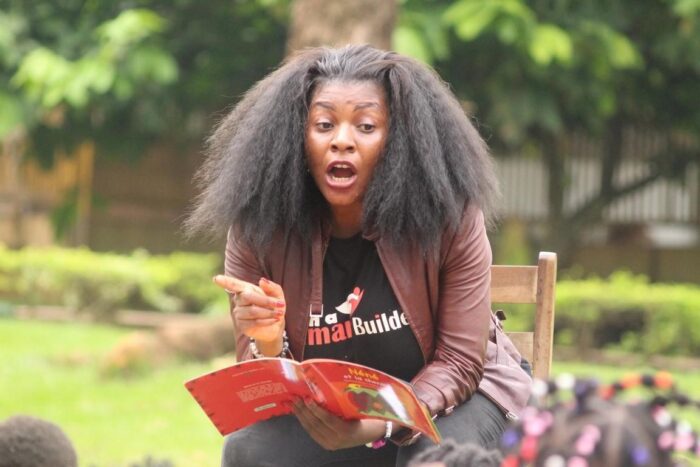Interview with Armelle Touko, by Hermann Labou for Muna Kalati.
Armelle Touko, 36, is the CEO of Adinkra Editions, a start-up specialising in the digital publishing of African children’s books, which she co-founded with Marie Gabrielle, her 12-year-old daughter. Aside from being a social and cultural entrepreneur, she is also the promoter of the ‘100 Little Writers Program’, writing workshops for children aged 6 to 14, and the ‘100 Little Readers Program for the promotion of reading inearly childhood. She graduated from ESSTIC (École supérieure des Sciences et Techniques de l’Information et de la Communication), where she was the valedictorian of her class. She has 17 years of professional experience in publishing, organizational communication and behaviour change communication. For 6 years, she served as the Behavior Change Communication Coordinator for the Access to Reproductive Health Services Program implemented in the Great North and East of Cameroon, until July 2020.
Amongher accomplishments, In October 2019, together with a group of young authors, they created the Collective Adinkra Women, whose main objectives are to bring together women of African origin around issues with which they identify, through literary, social, cultural and artistic projects; to pool strengths, potentials and resources for the promotion and enhancement of free and assumed expression of African women residing anywhere in the world and create a lobbying/network of skills and mutual support. The first general assembly took place on January 25, 2020.
A children’s author, she has to her credit a dozen illustrated books published on the Andikra platform. Her first physical book, ‘Le petit garçon qui pleurait tout le temps’, will be available in bookstores on October 8, 2022.
How was your first experience with books and reading?
Books have always been a companion in my life. From my earliest childhood until today, I have always been a book fanatic. Whether it was the school books of my elders when I was not yet in school or my first experience with children’s books, including my father’s newspapers (Takala and Muyenga sur le trottoir; a Challenge Hebdo column that I particularly liked despite my young age). Being very solitary, the book was like a point of contact between an imaginary world and my reality. A perfect symbiosis of what is the happiness of discovery and dreaming.
What were the first children’s books you read? Were they African? Do you reminder any author from your childhood? What did these reading practices teach you as a child?
The first children’s book I read was the Martine collection, given to me by a young aunt who came from the city and whom I have lost sight of today (Martine petite Maman, Martine fait du vélo, Martine, petit rat de l’opéra, etc.); then, the tales from the ‘Coffret magique’, which I could read at the neighbour’s house (Pinochio, Peau d’âne, Le petit soldat de plomb, etc.); then, Oui Oui, Les contes du chat perché avec Sophie et Marinette, which were always lying nonchalantly at my father’s bedside, and whose wacky farm stories I read quite realistically but had nothing to do with our reality. I was only confronted with African children’s literature with the books in the school program ‘Mon livre unique de Français’, from the collection la Cane et le coussinet, which threw out extracts of stories that marked our childhood.
What I learned from reading is that the world is large and the imagination has no limits; and that there is everything in books: love, values, dreams, differences, diversity, life.
Can you give us an overview of your career? Why did you become interested in the world of children’s books? Was it a choice or a twist of fate?
Being a publisher was for me a conscious and well-considered choice, but above all, a meeting point of passion and commitment. When I graduated from ESSTIC in 2006 and entered the publishing world, I had the feeling that I did not belong in this world where everything was routine and the processes were always the same. I missed something; the field is not as exciting as my idealistic dreams. Everything is economic. In 2009, while I was in charge of publishing at a local publishing house, I decided to resign and change course completely, but with the intrinsic promise to come back later, this time with my own publishing house, which I did with ADINKRA in 2018, 10 years later.
I chose the children’s book because I think it is a neglected treasure. It’s been a long time since we abandoned our children’s education to providence. The love for reading, self-love, is built right from the beginning, and it is there that we must put effort because the child of today is the adult of tomorrow. We are in what I call a cultural emergency. Our children grow up opening up to the outside world without really being anchored in it. The entertainment content they are exposed to presents them with 99% of the realities that are not theirs. This can create psychological biases such as a lack of self-confidence, self-esteem and assertiveness.
With Adinkra, we have chosen to offer our children inspiring and impactful books with African heroes and characters through which they can identify and represent themselves.
What challenges and obstacles were you confronted with? Was it easy to get published? Is it possible to make a living solely from this profession?
There are many challenges along the way. It was necessary to lead writing workshops to find talented authors and to accompany them in their development because it is difficult to find authors who know how to write for children. The best and rarest ones are already being published elsewhere.
The financial challenge is not the least. We work on the publisher’s account, which implies taking care of all costs related to the publishing of all our digital books, including the development and maintenance of the subscription platform. We do this as best as we can with our own funds, and sometimes we get help from our growing community.
In addition, going digital comes with its challenges. The first one is the permanent education of the community in the use of digital products. This is a constant struggle, but a necessary one. The second is the appropriation of related technologies. Digital payment systems in Africa, for example, are still unstable.
Regarding the question of profitability, we are doing the best we can. Adinkra is a young startup, still in its early stages and managing its own expenses as best as it can.
How do you promote your books? How is your work received by the public?
We haven’t really started the promotion work yet. We are still setting up the payment methods on the platform. That is the reason we have stopped the commercial communications actions. Once the payment methods are stable, which we hope to achieve in one or two months, we will really start our promotional activities. We promise explosive and completely novel actions with our business model, which is very different from traditional publishing.
What is your relationship with the authors and illustrators of African children’s books? Do you collaborate with Cameroonian children’s book professionals?
We work with about twenty authors and a dozen illustrators, mostly Cameroonian, but with a few other nationalities, such as Congo and Burkina Faso. We are gradually opening up to other African countries. We collaborate with all our energy, to the best of our ability. We believe that the supply of children’s literature is so low compared to the demand that all local children’s publishers should work together for better coverage.
Do you carry out actions for the promotion of children’s literature in Cameroon or Africa at large? Feel free to describe them if necessary.
Yes of course! The Adinkra project is a 360° project. If we produce content without promoting reading, who will read it?
Upstream, there is the “100 Little Writers Program, which is an annual writing program for children aged 6 to 14 years with 3 cycles according to the age range of the learners. The 1st Edition was held in 2021-2022 with the illustrious author and illustrator Christian Kingue Epanya as a sponsor. Through this edition, we were able to take 95 children in Yaoundé and Douala through writing workshops, days of dialogue with the actors of the book trade, immersion days in bookstores and libraries.
We have the ‘‘100 Little Readers Program’ which promotes reading and African books among children and parents. Through this program, we allow children to meet with the African book, through activities such as the ‘Picnic du Petit lecteur, Les petits ateliers Adinkra, Noël en Contes’’, etc. We also used to do group book shopping to help parents find African books at affordable prices for their children. But we stopped this last activity, now that the Adinkra Jeunesse platform is available online.
What impact has COVID had on your work? What steps have you taken to adapt?
COVID has been an impetus. Not only because we had the brilliant idea of publishing and distributing a digital book titled 12 planches pour expliquer le Coronavirus aux enfants (12-plate to explain the Coronavirus to children) that went viral on the web, reinforcing Adinkra’s reputation indeed. This book has been translated into eight languages at the request of the communities and countries concerned (Swahili, Bambara, Lingala, Mmmouock, Fufuldé, Sepedi, French, English, and Spanish) and has also been produced and distributed by the Ministry at a critical time.
Regarding the adaptability of work, you can imagine that with illustrators and authors living all over the world, telecommuting was already part of our pre-pandemic management habits.
In Cameroon, as in Africa, the children’s book sector is little known by the general public and especially by parents. How do you explain this phenomenon?
You are right. Even if our market research has allowed us to realize that parents are very interested in African children’s literature, the fact remains that they do not know where to find it. Books are really everywhere, except in bookstores, because the ecosystem is not sufficiently regulated to ensure the satisfaction of all actors. The Ministry of Arts and Culture, publishers, booksellers, and other actors should work together to make books more available to their targets.
Promotional work upstream must also be done in a concerted manner.
What do you think about the general situation of books and reading in your country? In Africa? Do you have any proposals to make to improve its management?
I think that everything remains to be done. We need a strong ecosystem that works together. But publishers are much too focused on school books because that’s where the money is. Distribution remains problematic and extremely expensive; promotion is almost non-existent. To improve the ecosystem, we need to get together to find solutions. The idea of the constitution of trade clusters by MINAC and their implementation is already a good step forward.
Alternative and forward-looking solutions such as digitalization must be encouraged and embraced.
In Africa, children’s literature is located on the periphery and is considered a marginal genre compared to classical literature. What do you think about this?
I think that children’s literature in Africa is still in its early stages; however, it is the future of publishing. It is a very promising market, of which publishers are not yet fully aware. But it will impose itself, given the ever-growing need among the target audience.
What is your vision for the future of children’s literature in your country?
Children’s literature is the future of publishing in Africa. The market is very big and very promising. We have to innovate and do things differently to be competitive in the local and international markets.
How do you want to contribute to the Muna Kalati project?
Muna Kalati is doing great work for children’s literature. Congratulations on that! We are totally open to proposals and willing to work together with this beautiful institution.
Any last word? Investing in the African child means investing in the present and the future. What we are doing today is not only for our children but for our children’s children. The road is long, and we need all our energy to achieve it. Thank you to Muna Kalati for being part of this positive energy of change. Thank you to all those who wish to join the movement.



